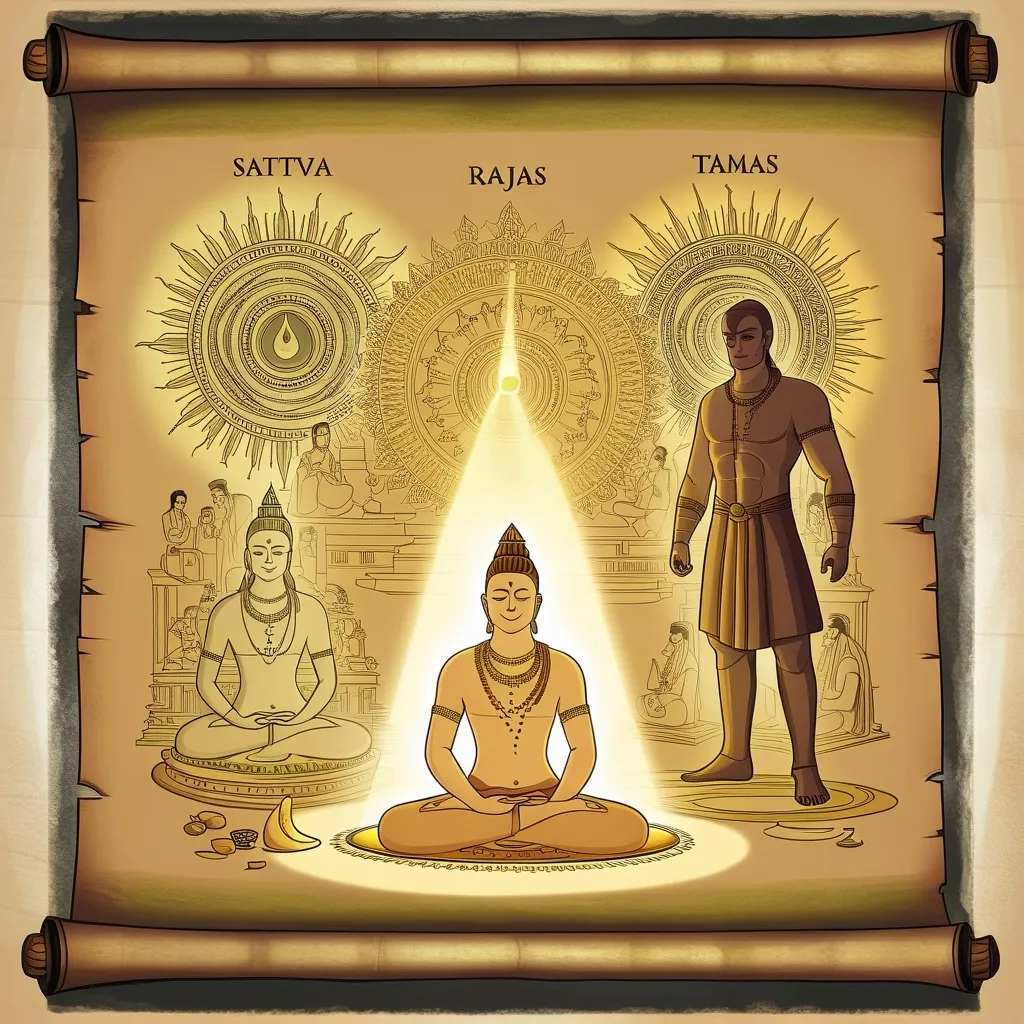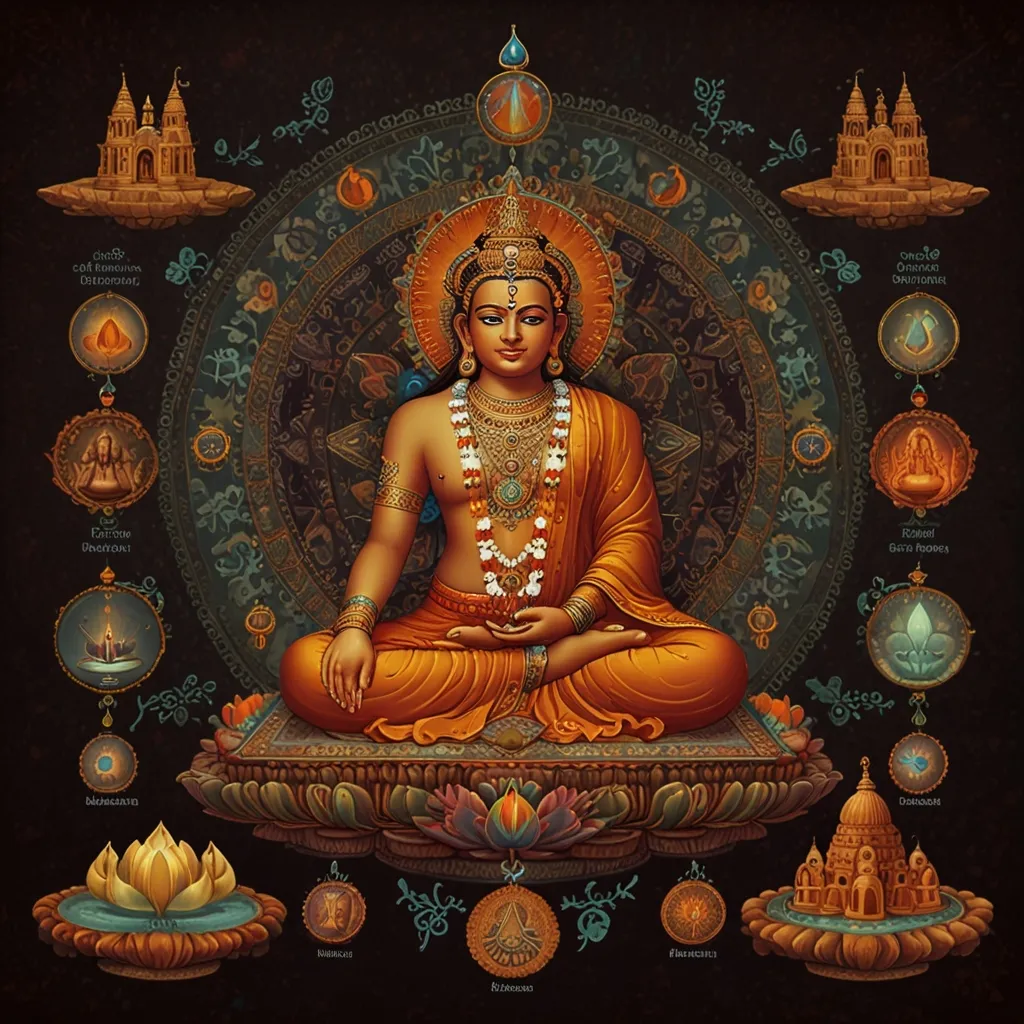In the sprawling tapestry of Hindu scriptures, the Yajur Veda shines brightly as a repository of ritualistic wisdom and ethical guidelines. It’s one of the four Vedas that digs deep into the essence of Dharma, or righteous living, laying down specific responsibilities for different sections of society, from everyday households to the rulers of empires.
Dharma is this ever-evolving, multifaceted idea at the heart of ethical conduct in Hinduism. It’s the moral compass guiding social and religious duties, encouraging individuals to act with integrity and righteousness. For families and householders, this means treating others with empathy and respect, being honest and dependable, and fulfilling their roles and responsibilities diligently. This idea of Dharma insists on living a balanced life, contributing positively to the community, and adhering to ethical standards in every action.
For household members, especially, upholding Dharma is everything. It’s all about living with integrity, making sure every action aligns with what’s right and just. You have to be fair and just, whether dealing with family or the community. Imagine a householder who practices Dharma; they’d treasure honesty, respect for all living beings, and a commitment to personal and professional ethics.
In everyday life, Dharma comes to life through simple yet profound actions. Maybe you’re volunteering for community service, adopting sustainable practices to respect the environment, or ensuring your professional conduct is ethical and fair. These actions not only uplift the community but also bring about a strong sense of personal fulfillment and spiritual growth, like you’re contributing to something much bigger than yourself.
Switching gears to the rulers, the Yajur Veda isn’t shy about giving detailed guidelines on Raja Dharma, the duties of kings and rulers. This code of conduct stresses that a king’s responsibility is to protect and serve all his subjects without bias. Think of it like how the Earth supports all life equally. Similarly, a king should provide equal support and protection to everyone under his rule.
Raja Dharma can be seen as an ancient version of modern constitutional law, setting out the powers and duties of rulers. Kings must ensure justice, fairness, and equality for everyone. Ancient texts hammer in this point, emphasizing that a king’s primary duty is looking out for the welfare of his people and upholding the moral order of society.
For a king, to practice Raja Dharma means embodying key virtues like compassion, fairness, and justice. Every action must be driven by a sense of duty and responsibility, whether it’s protecting the weak, upholding the law, or promoting social harmony. Kings need to be self-controlled, maintaining balance no matter the highs and lows, and always dedicated to the wellbeing of their kingdom.
In practical terms, a king should have the welfare of his subjects front and center, ensuring that justice is impartial and promoting policies that benefit everyone. Integrity should be their calling card, demonstrating honesty, transparency, and accountability in all actions. Can you imagine being a ruler who is a beacon of ethical leadership, someone who makes even the modern-day politicians look like amateurs?
Then there’s the concept of the three Gunas that the Yajur Veda talks about: Sattva, Rajas, and Tamas. These qualities exist in all beings and influence our actions and behaviors. Sattva is all about goodness, knowledge, and purity; Rajas connects with activity, love, and hatred; and Tamas embodies darkness, ignorance, and delusion.
Understanding and balancing these Gunas is vital, whether you’re a householder or a king. A life dominated by Sattva leads to bliss, calm, and purity. However, life drenched in Rajas brings pain and dissatisfaction. Tamas, on the darker end, leads to delusion and ignorance. Cultivating more Sattva in life means channeling a more virtuous and fulfilling existence.
The teachings of the Yajur Veda aren’t just pie-in-the-sky ideas; they’re meant to be woven into daily life. Take Ahimsa, or non-violence, for instance. This principle encourages compassion and respect for all living beings, stretching beyond physical harm to include emotional and psychological kindness. It’s like a call for peaceful coexistence.
In today’s context, Ahimsa can really flip the switch on how we treat others and the environment. It’s about being mindful of the impact of your actions, fostering empathy and ethical behavior. This could show up in being kind, honest, and fair in daily interactions, as well as in broader societal and environmental practices. Imagine a world where everyone tried to live a bit more like that. Pretty transformative, right?
The Yajur Veda is also heavy on the importance of rituals and sacrifices. It has detailed instructions on rituals, ceremonies, and sacrifices, aiming to forge a sacred connection between individuals and the divine. These rituals are not just religious norms; they’re methods to uphold Dharma and complete one’s duties. Everything from the correct pronunciation of mantras to the construction of altars and the preparation of offerings are part of a ritual that fosters spiritual growth and creates a sense of interconnectedness with the divine.
While the Yajur Veda is primarily focused on rituals, it also dips into profound philosophical insights. It explores fundamental concepts like Dharma, karma (the consequences of one’s actions), and Atman (the individual soul). The Veda delves into the eternal quest for truth, the nature of the self, and the ultimate purpose of human life, nudging individuals toward self-realization and spiritual growth.
Despite its ancient origins, the Yajur Veda feels startlingly relevant today. Its teachings on Dharma, Ahimsa, and fulfilling one’s duties can still inspire people to lead meaningful, purpose-driven lives. The emphasis on discipline, selfless service, and the quest for higher knowledge offers modern society a guidebook for navigating our own complexities and challenges.
The Yajur Veda’s wisdom offers a timeless guide for living a virtuous and fulfilling life, whether you’re a householder or a ruler. By understanding and incorporating these principles, anyone can lead a life of integrity, righteousness, and spiritual growth. This, in turn, contributes positively to their community and fosters a deeper connection with the divine. So whether we look back to ancient times or peer into the future, the Yajur Veda’s teachings remain a bedrock of ethical living, urging us all to strive for a higher standard of existence.






